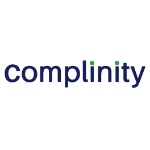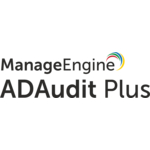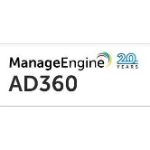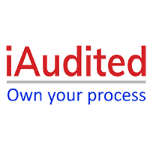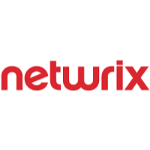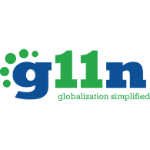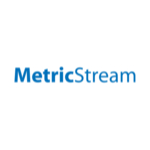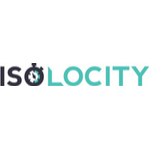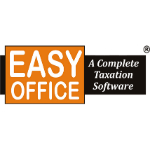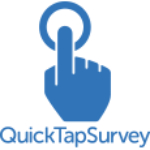TechnologyCounter provides genuine, unbiased real user reviews to help buyers make informed decisions. We may earn a referral fee when you purchase through our links, at no extra cost to you.
List of 15 Best Audit Management Software
Showing 1 - 15 of 96 productsComplinity is a software designed to streamline and simplify compliance management for businesses of all sizes. With its intuitive interface features, Complinity allows companies to easily track, report, and manage their compliance requirements in a...Read Complinity Reviews
ManageEngine ADAudit Plus, your go-to solution for simplified is a auditing of Active Directory environments. Designed to streamline the entire auditing process, our software offers a comprehensive array of features to help you monitor, secure, and r...Read ManageEngine ADAudit Plus Reviews
ManageEngine AD360 is a dynamic and powerful solution for managing your organizations active directory needs. With its user-friendly interface features, AD360 simplifies user and group management, automates routine tasks, and strengthens security pro...Read ManageEngine AD360 Reviews
SE Audit, is a solution for ensuring the security and compliance of your software. With SE Audit, you can confidently identify and address any potential vulnerabilities in your software, protecting your business and customers from potential risks. Tr...Read SE Audit Reviews
iAudited is a auditing software that simplifies and streamlines the entire auditing process for businesses of all sizes. With its user-friendly interface features, iAudited is revolutionizing the way companies manage their audits. From tracking findi...Read iAudited Reviews
ECAT is a highly advanced software designed to streamline and enhance your business processes. With its innovative features and user-friendly interface, ECAT sets a new standard for efficiency and productivity. Say goodbye to manual tasks and hello t...Read ECAT Reviews
MasterControl is a software solution designed to streamline and enhance quality management processes. With its user-friendly interface features, MasterControl empowers businesses to achieve greater efficiency, compliance, and overall success. Whether...Read MasterControl Reviews
Netwrix is a leading provider of innovative IT auditing and security software solutions. With a focus on helping organizations identify and mitigate cybersecurity risks, Netwrix offers a range of robust and user-friendly products that enable business...Read Netwrix Reviews
AuditMe is a solution for all your auditing needs. This powerful software is designed to streamline the auditing process and provide accurate results with ease. With AuditMe, you can track, analyze and report data effectively, ensuring maximum effici...Read AuditMe Reviews
MetricStream is a leading software platform that helps organizations maintain transparency, accountability, and efficiency in their operations. With over 20 years of experience, MetricStream provides innovative solutions to manage governance, risk, a...Read MetricStream Reviews
Isolocity is a is a software designed to streamline your business processes and boost productivity. With its user-friendly interface features, Isolocity revolutionizes the way you manage your tasks and projects. Experience the convenience and efficie...Read Isolocity Reviews
KDK Spectrum is a software solution for all your business needs. With its advanced features and user-friendly interface, KDK Spectrum streamlines your operations and boosts productivity. Say goodbye to complex processes and hello to efficiency with K...Read KDK Spectrum Reviews
EASYOFFICE is a solution to streamline your office tasks and boost productivity. With its user-friendly interface features, EASYOFFICE simplifies document creation, organization and communication. Say goodbye to manual tasks and hello to an efficient...Read EASYOFFICE Reviews
Spectrum Gold is a solution for all your financial management needs. With its advanced features and innovative tools, Spectrum Gold revolutionizes the way you handle your finances. Say goodbye to complicated spreadsheets and endless calculations, and...Read Spectrum Gold Reviews
QuickTapSurvey is a mobile survey app designed to help businesses and organizations collect valuable data and feedback from their target audiences. With its user-friendly interface features, QuickTapSurvey makes it easy for users to create, distribut...Read QuickTapSurvey Reviews
- What Is Audit Management Software?
- Top Reasons Why Businesses Need Audit Management Software?
- What Are the Top Key Features of Audit Management Software?
- What Are the Top Benefits of Audit Management Software?
- What Are the Steps to Choose the Right Audit Management Software?
- What Are the Types of Audit Management Software for Different Industries?
- What Are the Technology Trends for Best Audit Management Software?
- What Are the Deployment Options for Audit Management Software?
What Is Audit Management Software?
Audit management software is a type of software that assists companies and organizations in documenting and tracking their internal controls and financial reporting processes. It assists these organizations in ensuring that their financial reports are accurate and in accordance with industry rules.
The audit management system operates by offering a centralized platform for documenting and monitoring internal control systems, recording changes, and reviewing reports and transactions for anomalies. It can also assist firms in identifying possible fraud risks and devising strategies to eliminate them.
The best audit management software is critical for any company that wishes to stay in line with industry rules while also maintaining financial control and accuracy. By delivering real-time update notifications and automatic reporting, it can also assist limit the risk of errors and fraud.
Furthermore, the best audit software aids in team communication and coordination, ensuring that everyone follows the organization's norms and regulations. The audit management system can greatly minimize the amount of time and resources spent monitoring financial transactions and ensuring compliance with regulations.
Furthermore, it can reduce the likelihood of errors, fraud, and costly infractions.
Top Reasons Why Businesses Need Audit Management Software?
1. Automating audit processes: Audit management software enables the automation of intricate audit procedures, hence simplifying the task of ensuring timely completion of all audit operations.
2. Workflow optimization: The audit management system offers a centralized platform that effectively facilitates the management of audits, resulting in streamlined processes and decreased resource allocation and financial expenditure often associated with manual audit procedures.
3. Risk management: Audit management software is a valuable tool for companies in the process of defining, identifying, and evaluating potential risks. Additionally, risk management aids in the development of strategic plans, coordination of efforts, and implementation of effective and efficient responses to these risks.
4. Data accuracy: Audit management system plays a crucial role in facilitating organizations' efforts to maintain data accuracy and effectively report process performance by offering streamlined processes for conducting audits.
5. Document and evidence control: Internal audit software is utilized by firms to effectively manage and monitor the data gathered during audits, alongside pertinent documentation such as tenders, contracts, and other related materials.
6. Auditing performance: Audit management software enables firms to effectively assess the performance of audits and discern opportunities for enhancement.
7. Compliance: Audit management system plays a crucial role in facilitating firms' adherence to essential compliance requirements and aids in the identification of areas where regulatory gaps may be present.
8. Reducing audit costs: The implementation of automated systems in the audit processes leads to a reduction in the duration required for manual audit operations, resulting in a decrease in costs associated with conducting repeated audits.
9. Streamline audit cycles: Automation enables the expeditious completion of numerous intricate audit procedures, hence facilitating the optimization of auditing cycles through streamlined outcomes.
10. Enhancing audit quality: The best audit management software enables audit firms to prioritize the value-added components of audit performance while ensuring that sufficient time is allocated to ensure the production of meaningful information.
11. Optimizing audit organization: Audit management system facilitates the automation of audit procedures, so enhancing the efficiency of organizing, tracking, and reviewing duties related to a specific audit, while also ensuring the uniformity of outcomes.
12. Maintenance of records: Audit management software is a valuable tool for maintaining comprehensive and current records of audit operations. This software facilitates the documentation of various aspects of the audit process, such as input, output, and progress.
The objective of maintaining these records is to ensure compliance with relevant regulations and regulatory reporting.
13. Resource optimization: Internal audit software facilitates the identification of areas inside businesses where operations can be automated or enhanced, hence enabling the optimization of resource utilization.
14. Inventory and asset monitoring: The best audit management software is a valuable tool that aids in physical assets monitoring and inventory management. Its primary objective is to enhance asset usage and minimize the overall cost of ownership.
15. Better results and Increased efficiency: The utilization of internal audit software facilitates improved decision-making processes, leading to enhanced operational efficiency and cost-effectiveness, owing to the convenient availability of precise and reliable audit data.
What Are the Top Key Features of Audit Management Software?
1. Real-time reporting: The audit management software must to include the capability to generate reports in a timely manner, containing precise and current data.
2. Automated alerts: One notable characteristic of an audit management system is its capacity to establish automated alerts and notifications for any modifications or revisions made to the audit.
3. Automated workflow: Automated workflows play a crucial role in internal audit software as they serve to enforce consistent adherence to standardized procedures and facilitate the creation of a precise record of audit activities.
4. Document library: One notable characteristic of the best audit management software is the inclusion of a document library, wherein all pertinent documents are stored and accessible through a user-friendly search engine.
5. Compliance tracking: The inclusion of compliance tracking with legal and regulatory requirements is a crucial feature that should be incorporated into audits software.
6. Risk analysis: The inclusion of risk analysis functionality inside audit management software is crucial as it empowers auditors to evaluate the potential risk exposure of the organization.
7. Integration with other systems: In order to optimize the utilization of precise data, it is imperative for audits software to possess seamless integration capabilities with various systems, like enterprise resource planning (ERP) or accounting systems.
8. Role-based access control: In order to guarantee the confidentiality and integrity of audit proceedings, it is imperative for the best audit management software to incorporate role-based access control mechanisms.
9. Audit trail: The provision of a comprehensive audit trail is a crucial feature that audits software should possess, as it facilitates efficient retrieval of information and enables effective tracking of changes.
10. Cloud-based deployment: Cloud-based deployments facilitate enhanced collaboration and seamless access to audit information for teams, irrespective of geographical constraints.
What Are the Top Benefits of Audit Management Software?
1. Increased Transparency: Audit management software enables organizations to achieve comprehensive visibility and oversight of their processes and operations. This facilitates the ongoing monitoring and evaluation of company activities, so enabling prompt identification and resolution of any potential risks or concerns.
2. Improved Compliance: Audit management software is a tool utilized by organizations to ensure adherence to external standards and government regulations. Its primary function is to document and monitor activities in order to fulfill compliance obligations.
3. Streamlined Processes: The utilization of audit management software in automating processes allows organizations to effectively minimize duplications, and workflow management, and enhance operational efficiencies.
4. Improved Risk Management: Audit management software enhances the existing Risk Management procedures by effectively monitoring risks, detecting potential areas of concern, and delivering automatic notifications in the event of compliance difficulties.
5. Improved Resource Utilisation: Internal audit software facilitates the optimal allocation of resources by prioritizing projects or activities based on their significance, hence enhancing resource utilization efficiency and effectiveness.
6. Improved Documentation: Audit management software facilitates the efficient and precise acquisition of documents and data, hence mitigating errors and enhancing the efficacy of record-keeping processes.
7. Enhanced Communication: Audit management software facilitates enhanced collaboration both within and across departments, hence enabling more efficient and streamlined communication processes.
8. Improved Auditing and Reporting: The utilization of audits software facilitates the generation of precise and comprehensive audit reports that incorporate current and relevant data. This practice leads to a reduction in the amount of time dedicated to performing audits and enhances overall efficiency.
What Are the Steps to Choose the Right Audit Management Software?
1. Identify your organization's audit management requirements: A comprehensive audit management solution ought to cater to the distinct requirements of individual audit teams inside an organization, taking into account the extent and intricacy of the audit process.
Request the participation of auditors and the audit committee in the software selection process to ascertain the essential features and advantages required.
2. Evaluate the range of audit solutions available: Conduct a comprehensive investigation of the existing solutions offered in the market, analyzing their respective features and customer feedback, in order to identify an audit management system that aligns with the specific needs and criteria of your firm.
3. Ask for demonstrations or free trials: It is recommended to establish communication with vendors in order to arrange demonstrations or request a free trial of the internal audit software. Additionally, it is advisable to inquire about the program's functionalities and assess its compatibility with the unique requirements of your firm.
4. Evaluate ease of use and price: It is imperative to consider the factors of usability, scalability, customer service, and price. The presence of a scalable and user-friendly technology, complemented by a dependable customer service team, is crucial.
5. Maximize reporting and analytics: The process of auditing necessitates the utilization of reporting and analytics techniques in order to discern trends, dangers, and patterns. Selecting an audit management system capable of producing comprehensive reports for decision-makers, hence optimizing time and resource utilization, is recommended.
6. Assess integration capacity: Assess the ability of an audit management system to seamlessly interface with other solutions inside the organizational framework. The establishment of a smooth and uninterrupted data flow, as well as the maintenance of uniform reporting, holds significant importance.
7. Test the audit management software: In conjunction with doing trials and demonstrations, it is advisable to undertake a beta testing phase for the system, when its performance and security are rigorously evaluated over a predetermined duration, prior to making any investments.
What Are the Types of Audit Management Software for Different Industries?
The selection of audit management software for various sectors is contingent upon the specific requirements of each industry.
Nevertheless, there are certain prevalent features and functionalities that are typically found across different software options.
1. Regulatory Compliance: The audits software facilitates organizational adherence to legal and governmental regulations.
2. Risk Management: The cloud based audit software facilitates the process of risk identification, prioritization, and mitigation for companies.
3. Quality Control: The software offers enterprises the capability to monitor quality indicators across all operational domains.
4. Asset Management: The software facilitates the monitoring and asset management of various organizational assets, encompassing inventory, production, and maintenance.
5. Financial Auditing: The software in question offers firms the ability to gain valuable insights into their financial well-being and effectively identify potential for reducing costs.
6. Audit Planning: The cloud based audit software facilitates the creation, monitoring, and enhancement of the audit process within enterprises.
7. Audit Scheduling: The audits software facilitates the scheduling, allocation, and monitoring of audits within businesses.
8. Process and Data Mapping: The internal audit software facilitates the mapping and visualization of processes and data within businesses, hence enhancing operational efficiency.
What Are the Technology Trends for Best Audit Management Software?
The current trajectory of technology trends in the realm of the best audit management software is mostly centered around enhancing data security, augmenting data analytics capabilities, and facilitating flexible user management functionalities. These advancements aim to empower users in maintaining a high level of organization and efficiency within their audit processes.
Data security elements are implemented in order to safeguard the integrity and confidentiality of the data stored within the software, hence preventing any unwanted access or alteration. The utilization of data analysis capabilities empowers customers to extract valuable insights from their audit logs and searches.
Additionally, audits software facilitates the identification of patterns and correlations within their audit data, hence enabling the identification of areas for development and effective risk management. The implementation of flexible user management enables users to allocate distinct roles and rights within the software, while also establishing security policies.
Additional trends observed in cloud based audit software encompass predictive capabilities, seamless connectivity with diverse third-party systems, and enhanced scalability.
What Are the Deployment Options for Audit Management Software?
Audit management software offers several deployment choices, encompassing on-premise, cloud-based, and hybrid solutions.
On-premise solutions refer to the hosting of computer systems and facilities only on the user's own premises, whereas cloud based audit software involves the remote hosting and management of resources in the cloud.
Hybrid solutions provide the flexibility to deploy certain components of the audit management software on-premise while utilizing cloud infrastructure for other components.
The appropriateness of each deployment option for internal audit software depends on the product's scope and the individual demands of the user.
